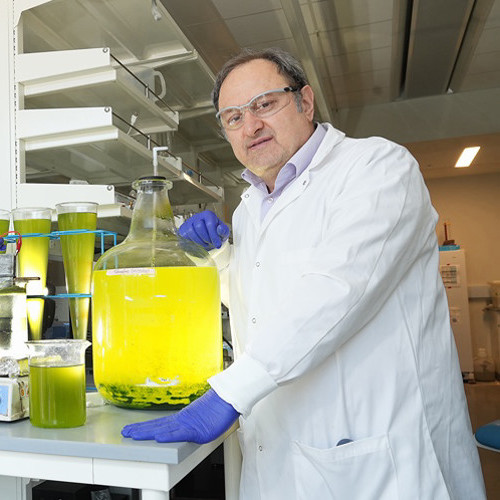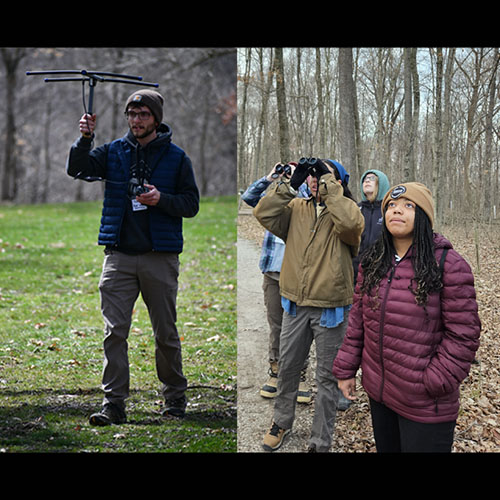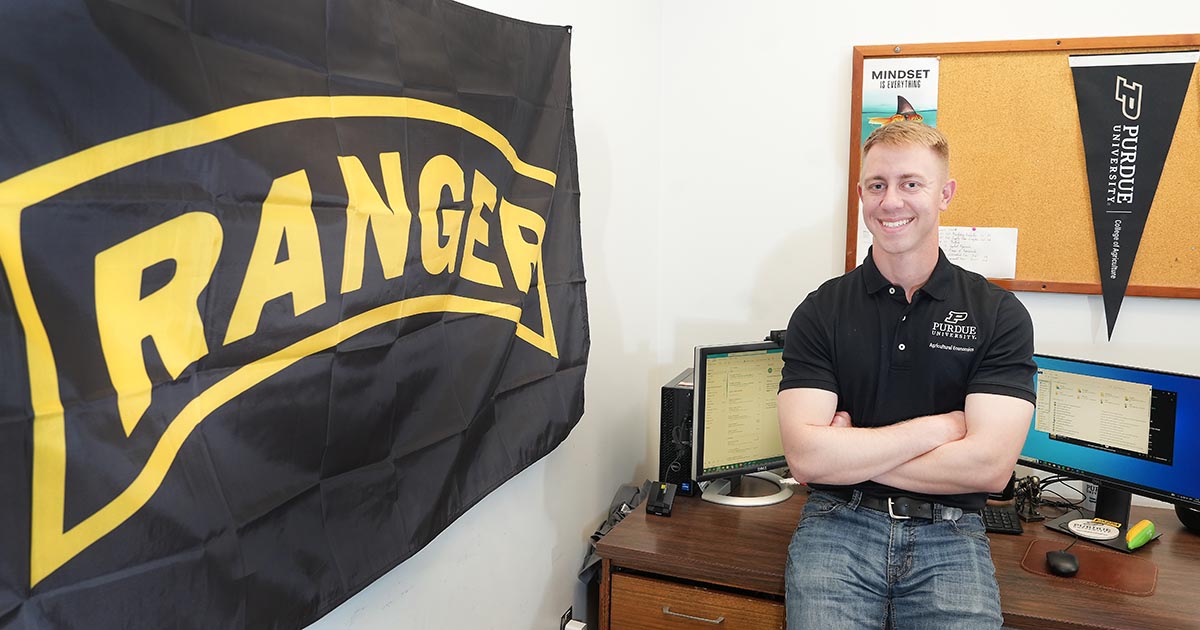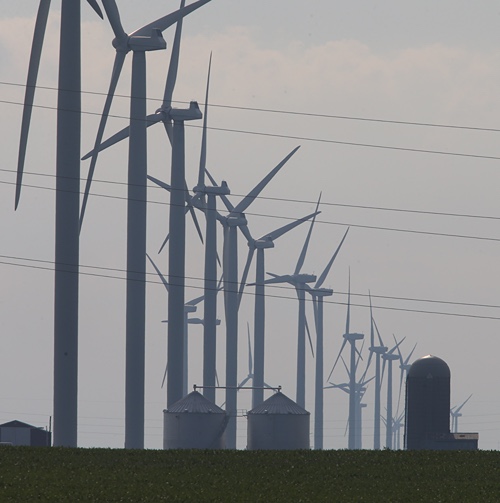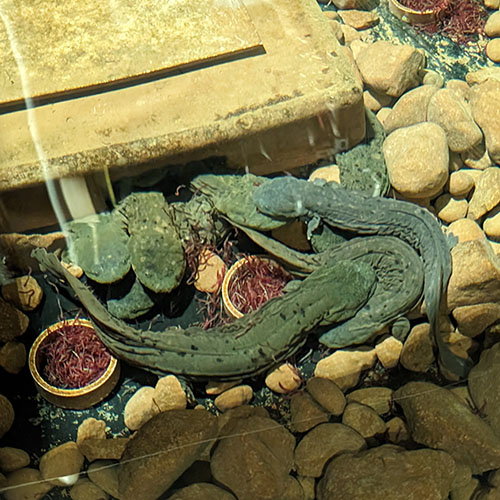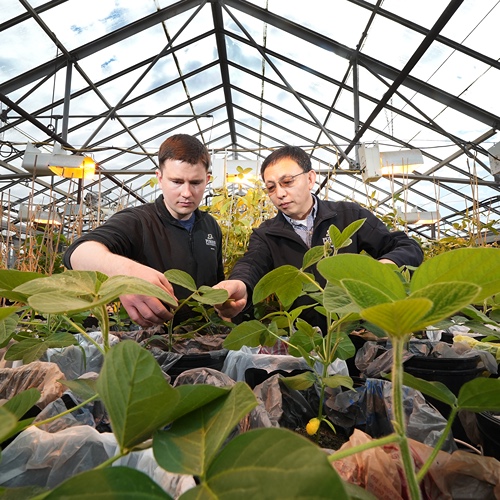“Insects can give us information, and help us solve cases and give people answers.
- Teomie Rivera-Miranda, PhD candidate, Department of Entomology
The student
A major hurricane, power outage, pandemic — none of those were going to stop Teomie Rivera-Miranda from pursuing her academic goals. The native of Puerto Rico, who has “always been fascinated by animals, insects and plants,” earned a bachelor’s degree in biology at the University of Puerto Rico, Bayamon. In her senior year, she developed her own research project in which she placed pieces of pork in different environments and studied the insects attracted to the decomposing meat. “At the time, I didn’t know that was actually called forensic entomology,” she says. Hurricane Maria postponed her master’s degree study in molecular biology at the University of Puerto Rico, Río Piedras, destroying her lab and the butterfly house she was supposed to work in. Instead, through her advisor’s connections, she spent eight months at George Washington University studying genes involved in butterfly wing patterns and presented her results at a conference in Ireland. She returned to Puerto Rico and completed her MS in May 2020 — “right in the middle of the pandemic,” she says. Puerto Rico was also having issues with the power grid, and an hour before her virtual master’s defense, her location lost electricity. “I was freaking out,” Rivera-Miranda says, but fortunately, it came back on long enough for her to pass. Her now-husband, who was in West Lafayette working on a PhD in chemistry, encouraged her to explore Purdue doctoral programs. She recalls her surprise at finding a forensic entomology program and arrived on campus in July 2020 to join the lab headed by Krystal Hans, assistant professor of entomology. “It was a lot of changes, moving to Indiana, the winter, the pandemic,” she says. “It has been worth it.”
THE RESEARCH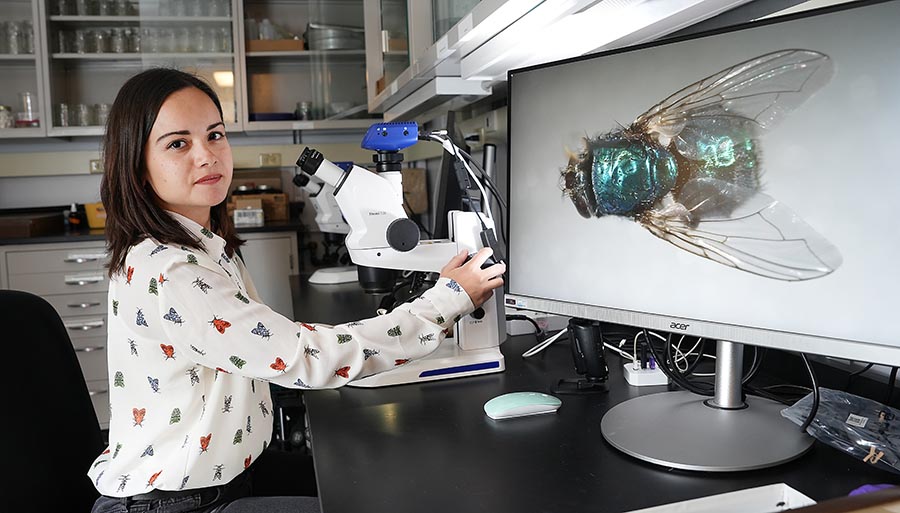
“Forensic entomology is the use of insects and arthropods in legal investigations,” Rivera-Miranda says. In a death case, for example, insects can help establish how long a person has been dead and even if the body was moved. “In my research I focus on pesticides and how they affect forensically relevant insects,” she explains. In a combination of lab and field work, she studied the effects of two pesticides commonly used in U.S. agriculture on blow fly oviposition, or process of laying eggs, and development, which in turn may delay or accelerate the decomposition process. She is currently analyzing the data. In upcoming research, Rivera-Miranda will compare genetic resistance to pesticides in flies kept in the lab versus those in the wild.
opportunities
Rivera-Miranda credits Hans with providing opportunities in teaching and outreach on and off campus. Rivera-Miranda recently sat for the American Board of Forensic Entomology Technician certification, which will allow her to collect evidence at scenes without supervision. She represented her department at the U.S. Capitol by advocating for entomology research and science policy during the Entomological Society of America’s Swarm the Hill Day in November 2023. She and other students also accompanied Hans to Ohio to train law enforcement on collecting, packaging and shipping insect evidence.
future plans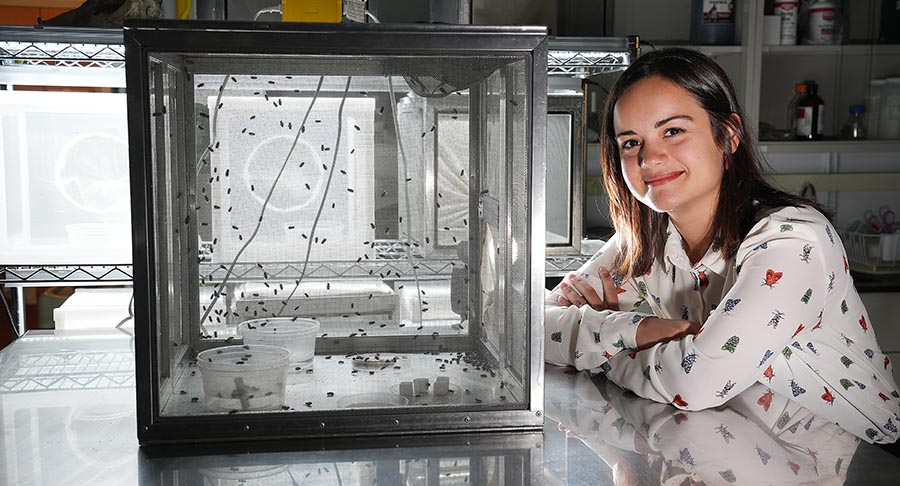
Rivera-Miranda hopes to join the ranks of 23 board-certified forensic entomologists in the U.S. and to expand knowledge of the field. After completing her PhD in May 2025, she would like to remain in academia but also work as a forensic entomology consultant, as Hans does. Eventually she plans return to Puerto Rico to start a program there in her field. “I see that as a way of giving back to the university,” she says. Away from campus, she enjoys crafts, movies, television and reading as well as time outdoors or in the gym.
